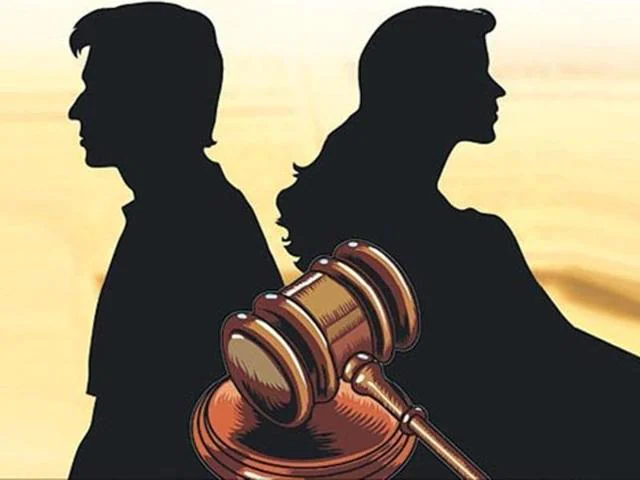This article is authored by Gauri Bansal and edited by Mr. Anoop Prakash Awasthi, AOR and Adv. Prapti Singh.
Divorce is putting an end to the marital relationship by the legal dissolution of the marriage by a court or other competent body, i.e., it is a formal ending of the marriage. After divorce, parties to the marriage are no longer husband and wife and the divorce decree allows them to be free of any liability towards each other and the right to remarry as they like.
Under Hindu law, marriage is a sacrament as it is believed to be made by God, that lasts till death, but, after the enactment of the Hindu Marriage Act, 1955, divorce was recognized under the following sections-
Section 13, states the various grounds for divorce.
Section 13A, states the alternate relief in divorce proceedings, namely judicial separation.
Section 13B, talks about Divorce by Mutual Consent of the parties (inserted by Act 68 of 1976)
“Divorce by mutual consent.—(1) Subject to the provisions of this Act a petition for dissolution of marriage by a decree of divorce may be presented to the district court by both the parties to a marriage together, whether such marriage was solemnized before or after the commencement of the Marriage Laws (Amendment) Act, 1976 (68 of 1976), on the ground that they have been living separately for a period of one year or more, that they have not been able to live together and that they have mutually agreed that the marriage should be dissolved.
(2) On the motion of both the parties made not earlier than six months after the date of the presentation of the petition referred to in sub-section (1) and not later than eighteen months after the said date, if the petition is not withdrawn in the meantime, the court shall, on being satisfied, after hearing the parties and after making such inquiry as it thinks fit, that a marriage has been solemnized and that the averments in the petition are true, pass a decree of divorce declaring the marriage to be dissolved with effect from the date of the decree.]”
Further, as per Section 14, no petition for divorce can be presented within one year of marriage
No petition for divorce to be presented within one year of marriage.—(1) Notwithstanding anything contained in this Act, it shall not be competent for any court to entertain any petition for dissolution of a marriage by a decree of divorce, [unless at the date of the presentation of the petition one one year has elapsed] since the date of the marriage: Provided that the court may, upon application made to it in accordance with such rules as may be made by the High Court in that behalf, allow a petition to be presented [before one year has elapsed] since the date of the marriage on the ground that the case is one of exceptional hardship to the petitioner or of exceptional depravity on the part of the respondent, but if it appears to the court at the hearing of the petition that the petitioner obtained leave to present the petition by any misrepresentation or concealment of the nature of the case, the court may, if it pronounces a decree, do so subject to the condition that the decree shall not have effect until after the [expiry of one year] from the date of the marriage or may dismiss the petition without prejudice to any petition which may be brought after [expiration of the said one year] upon the same or substantially the same facts as those alleged in support of the petition so dismissed. (2) In disposing of any application under this section for leave to present a petition for divorce before the [expiration of one year] from the date of the marriage, the court shall have regard to the interests of any children of the marriage and to the question whether there is a reasonable probability of a reconciliation between the parties before the expiration of the [said one year].
Thus, as per 13B, if parties are living separately for more than 1 year, they can file for divorce. But, as per Sec 14, a divorce petition cannot be entertained if moved within 1 year of marriage. There are several cases of different High Courts and Supreme Court which have taken different views on this-
- Views of different High Courts
- The petition cannot be entertained–
- Rishu Aggarwal vs Mohit Goyal, 2022 – Delhi High Court
Only 10 days after the solemnisation of marriage, the spouses started living separately, and later in different houses, and claimed that, the absence of consummation was exceptional hardship/depravity and thus, wanted divorce under 13B.
The Court observed that only the period of ‘cooling time of 6 months has been given relaxation’ but the criteria of 1 year cannot be condoned under any circumstance. Thus, the appeal was dismissed.
- Arpit Garg vs Ayushi Jaiswal, 2019 – Allahabad High Court
Divorce petition filed under 13B within 3 months of marriage. The Court said,
‘The petition filed within less than one year of marriage on the ground of mutual consent is not at all maintainable and the court below was fully justified in not entertaining the petition filed for divorce by mutual consent as premature with a direction for return of the divorce petition to the petitioner. ‘
- Ganesh Babu Vs A.P. Aarthi, 2012 – Madras High Court
The appeal was dismissed stating that Sec 14 is mandatory.
- Petition allowed and divorce decree given-
- Shivani Yadav Vs Amit Yadav, 2021 – P&H High Court
Within 3 months of marriage, the couple filed for divorce under 13B with an application to reduce/condone the mandatory period of 1 year under Sec 14.
Citing Mandeep Kaur Bajwa vs. Chetanjeet Singh Randhawa, 2015, where the period was condoned keeping in mind the young age of the couple.
Here, the Court said that keeping in mind the very young age, time they spent together (2days), and the condition that they will not claim anything from each other, the Divorce decree was granted.
- Dimple Tyagi Vs Himanshu Tyagi
The decree of Divorce was granted within 1 year taking the view that Sec 14 is directory and not mandatory (citing Calcutta High Court).
- In the Hon’ble Supreme Court in various cases of such kind where the duration was in question, certain views have been taken-
‘The Hon’ble Apex court was mainly dealing with the statutory period of six months u/sec. 13-B(2) HMA, but the Hon’ble Supreme Court has nowhere permitted the court or the parties to waive the statutory period of one year as provided u/sec. 13-B (1) of HMA. The Hon’ble Court has observed that the court dealing with the matter should be satisfied that a case is made out to waive out the statutory period of six months u/sec. 13-B (2) HMA and should also be satisfied that the statutory period of one year as prescribed under section 13-B(1) HMA is already over that the Hon’ble Supreme Court is of firm opinion that period of one year as provided u/sec. 13-B (1) HMA should be over before the presentation of divorce petition on mutual consent and has nowhere observed that the said period of one year is directory in nature and not mandatory.’ (Rishu Aggarwal vs Mohit Goyal)
In Amardeep Singh versus Harveen Kaur, the cooling off period of 6 months under 13B was relaxed. Also, in certain cases like Ashok Hurra Vs Rupa Hurra, Swati Verma Vs Rajan Verma and Jimmy Purohit Vs Sudarshan Purohit the apex court has used its SPECIAL POWER under Article 142 of the Indian Constitution in ‘ THE BEST INTEREST OF THE PARTIES’
Anil Kr Jain Vs Maya Jain 2009
the Supreme Court invoked its extraordinary powers under Article 142 of the Constitution of India in order to do complete justice to the parties when faced with a situation where the marriage-ties had completely broken and there was no possibility whatsoever of the spouses coming together again. In such a situation, this Court felt that it would be a travesty of justice to continue with the marriage ties. It may, however, be indicated that in some of the High Courts, which do not possess the powers vested in the Supreme Court under Article 142 of the Constitution, this question had arisen and it was held in most of the cases that despite the fact that the marriage had broken down irretrievably, the same was not a ground for granting a decree of divorce either under Section 13 or Section 13-B
Smruti Pahariya vs Sanjay Pahariya 2009 SC
In our view it is only the mutual consent of the parties which gives the Court jurisdiction to pass a decree for divorce under Section 13B. So, in cases under Section 13B, mutual consent of the parties is a jurisdictional fact. The Court while passing its decree under Section 13B would be slow and circumspect before it can infer the existence of such jurisdictional fact. The Court has to be satisfied about the existence of mutual consent between the parties on some tangible materials which demonstrably disclose such consent.
Conclusion-
Although no such judgement has been given by the apex court to grant decree of divorce under 13 B within 1 year of marriage, the Supreme Court has in its judgments, many times relaxed the conditions for granting divorce using its Special Powers to do complete justice under Art 142, and thus, if the conditions may be such as young age, no claims the decree can be granted within 1 year.
In different High Courts, different views have been taken where mostly the decree was denied, but in certain circumstances, the same was allowed.




